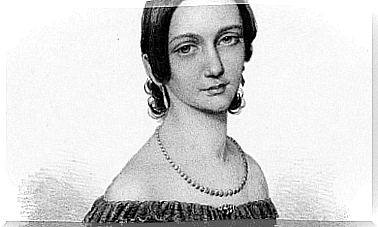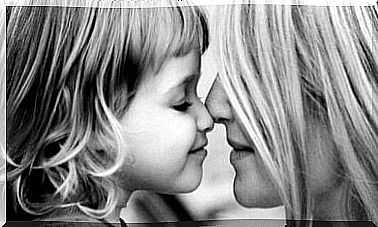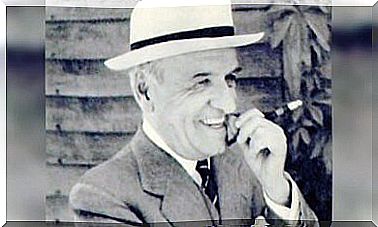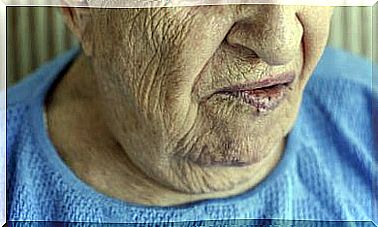Alice Herz-Sommer, Biography Of A Surviving Artist
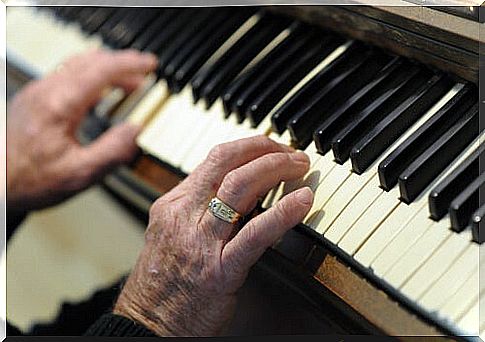
Today we bring you a journey through the life of Alice Herz-Sommer, a survivor, a woman who defied death and managed to live to the impressive age of 110.
Why do we say that she is a survivor? Because she was sentenced to death when she was very young: she was Jewish and was taken to a concentration camp. For this very reason, she was doomed to be an eternal victim. However, against all odds, she earned the nickname “the most optimistic woman in the world.”
In one of the many interviews she gave, Alice Herz-Sommer said that she had a twin sister with whom she shared appearance, parents, and genes; but whose attitude was radically opposite. Alice said that she was born to be optimistic and always managed to see the bright side in any circumstance, even in the worst conditions.
This woman was greatly admired for the vitality that she preserved until the last years of her life. Despite his advanced age, he practiced the piano, his great passion , every day. In addition, she was almost a hundred years old when she enrolled in a university for the elderly, her eagerness to learn and improve herself never ceased. Therefore, we invite you to discover the keys to this longevity and the optimism with which he always faced life.
Alice Herz-Sommer and a happy childhood
In the history of people who have that high level of resilience , there is almost always a happy childhood. Alice Herz-Sommer was born in Prague (Czechoslovakia) on November 26, 1903. She came from a family of Jewish musicians, in which art and culture occupied a fundamental place.
The most renowned artists and intellectuals of the time passed through Alice Herz-Sommer’s house. Franz Kafka was one of the regulars of the house. In fact, Alice’s sister married the literary genius’s best friend. They were also visited by Gustav Mahler, Rainer Maria Rilke, Stefan Zweig and Thomas Mann. Even Sigmund Freud was one of the family’s guests.
Alice had a deep love for music from an early age. From the age of eight, she devoted herself to the piano with love and discipline, and when she was just a teenager she already gave concerts throughout Prague.
The Nazi invasion
In 1931, Alice Herz-Sommer met Leopold Sommer, who was also a musician. She married him and he became the great love of her life. In 1937, their only son, Raphael, was born. But happiness did not last forever, and in 1939, the Nazi occupation of Czechoslovakia occurred. Most of the Jews were sent to a ghetto. Alice and her family had respect for their surroundings and, perhaps, that is why they were allowed to continue living in their apartment.
However, things started to get difficult. The Czechs themselves, as the war progressed, began to discriminate against Jews. In 1942, deportation letters arrived for Alice’s mother and Leopold’s parents. It was a dramatic moment.
Alice herself had to take her 72-year-old mother to the deportation center. There he said goodbye and watched her go, knowing that she was marching towards death. That moment of helplessness was for her the most devastating of her life. Even several decades later, Alice continued to remember her mother with nostalgia, melancholy and sadness, especially through Mahler’s melodies.
A survivor
It did not take long for a new deportation order to arrive at the family home. In 1943, a new order ended up breaking the nucleus; this time, intended for Alice Herz-Sommer, her husband and their son. All three were taken to the Theresienstadt concentration camp, which was considered a “field for artists.” In theory, those held there were to be preserved, although it was later proven to be a lie.
In the country, Alice began to play for the Nazis, who planned their exterminations while they dined to the rhythm of the concerts offered by this wonderful pianist, but she also played for the inmates. He said that, in total, he had made 150 presentations and that, in many of them, he could see how the music nourished the tormented souls of those who were confined there.
Her husband was transferred to the Auschwitz camp and, when he said goodbye, he said: “Do not do anything voluntarily.” Days later, the Nazis requested “volunteers” who wanted to meet with their husbands. Alice remembered Leopold’s words and refused, in this way, she managed to save her life. She used to say that the hardest thing, if anything, was having seen her son go hungry and, to compensate, she always smiled.
Alice Herz-Sommer and her son were some of the few survivors of the camp. After the war was over, they moved to Israel. Alice made up her mind not to live in the past and to raise her child without hatred. Raphael ended up becoming a famous cellist and Alice passed away at the age of 110 in the English city of London.
Undoubtedly, his example is essential to see how far the human being is capable of supporting and how our attitude towards life can determine our future.

